Newsletter #5
September 4, 2018
Performing on the Cutting Edge of Education
Educators – from pre-school teachers to college professors – are increasingly experimenting with play and performance as a means of helping their students (and their institutions) to develop. Playful educators have been a vital part of Performing the World from the beginning. This year is no exception. Educators from all over the world, old friends and new, are presenting at Performing the World 2018. Here are a few of them.
This is the sixth PTW for Fernanda Liberali, a researcher and professor at the Pontifical Catholic University in São Paulo, Brazil. The LACE (Linguagem em 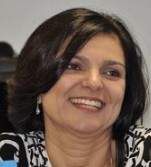 Atividades no Contexto Escolar) Research Group, which Liberali leads, has long played an important role in bringing innovation into Brazil’s schools. This year Liberali will be reporting on DIGIT-M-Ed, a new activity developed in the face of the current dismantling of progressive achievements in Brazil, including in the area of education. DIGIT-M-Ed fosters collaboration in the classroom to help participants go beyond increasing restrictions and generate new possibilities for their schools and communities.
Atividades no Contexto Escolar) Research Group, which Liberali leads, has long played an important role in bringing innovation into Brazil’s schools. This year Liberali will be reporting on DIGIT-M-Ed, a new activity developed in the face of the current dismantling of progressive achievements in Brazil, including in the area of education. DIGIT-M-Ed fosters collaboration in the classroom to help participants go beyond increasing restrictions and generate new possibilities for their schools and communities.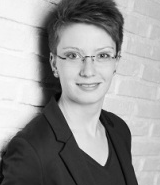
New to Performing the World is Marisa Holzapfel, from Essen, Germany who will be leading a workshop on techniques she’s helped to develop at the University of Duisburg-Essen for using humor in the teaching of science and health.
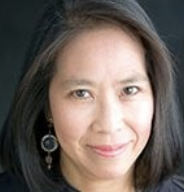 Also attending her first PTW is Judy Wong, visual artist, performer, writer and faculty member at New York City’s Pace University. She’ll share the history and method of TELL (Theatre for English Language Learners), her theatre dedicated to the performance of new and original culturally relevant theater for students from kindergarten through high school who are learning English as a second language.
Also attending her first PTW is Judy Wong, visual artist, performer, writer and faculty member at New York City’s Pace University. She’ll share the history and method of TELL (Theatre for English Language Learners), her theatre dedicated to the performance of new and original culturally relevant theater for students from kindergarten through high school who are learning English as a second language.
This is the second PTW for Natalia Collings. Originally from Volgograd, Russia, now teaching educational psychology and 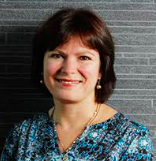 assessment at Central Michigan University, USA, Collings will be leading a discussion of grades as an obstacle to creating community among students and teachers. She will make the case for abandoning grades in a college (and potentially any) classroom. As an alternative, Collings advocates orchestrating learning as a set of collectively created performances. In as similar vein, Deborah Kronenberg, participating in PTW for the first time,
assessment at Central Michigan University, USA, Collings will be leading a discussion of grades as an obstacle to creating community among students and teachers. She will make the case for abandoning grades in a college (and potentially any) classroom. As an alternative, Collings advocates orchestrating learning as a set of collectively created performances. In as similar vein, Deborah Kronenberg, participating in PTW for the first time, will be sharing her work at Pine Manor College, in West Roxbury, Massachusetts, USA, in breaking down the boundaries of departments and programs by transforming classrooms and schools into performatory ensembles.
will be sharing her work at Pine Manor College, in West Roxbury, Massachusetts, USA, in breaking down the boundaries of departments and programs by transforming classrooms and schools into performatory ensembles.
Also coming to PTW 2018 is They Call Teachers by their First Names, an ethno-drama created and performed by a group of pre-service teachers from Southwestern University in Georgetown,
Texas, USA, about their tour of alternative and innovative schools in New York City. Led by their professor 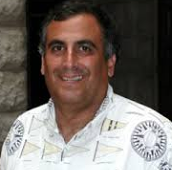 Michael Kamen, the students, through their performance, explore their initial discomfort with informality, lack of structure, and no letter grades and how that discomfort led them to conversations about social justice, empowerment, and activism.
Michael Kamen, the students, through their performance, explore their initial discomfort with informality, lack of structure, and no letter grades and how that discomfort led them to conversations about social justice, empowerment, and activism.
That’s a sampling of the playful and performatory experiments with and explorations of education that will be presented at PTW 2018. The next, and last, Performing the World 2018 Newsletter, will look at some of the performatory approaches to community building that will be presented at our conference/festival to be held in New York City, the weekend of September 21-23.
